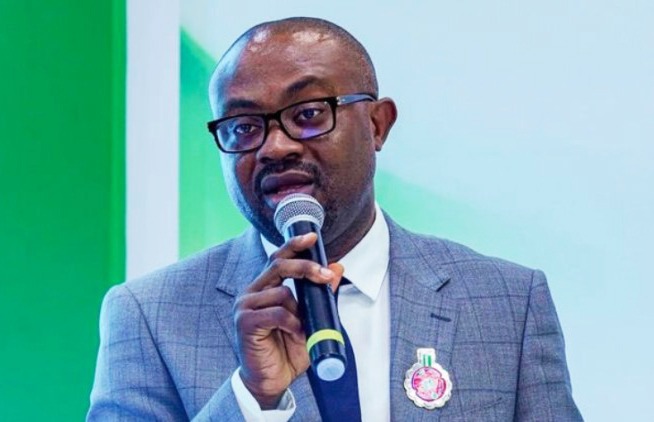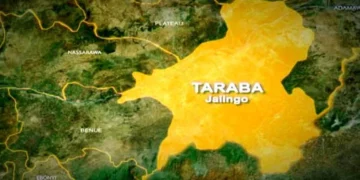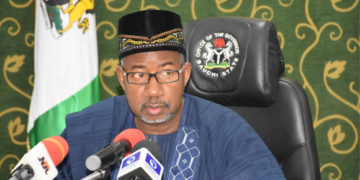The Minister of Interior, Olubunmi Tunji-Ojo, on Tuesday, said criminals declared wanted by various countries across Europe and on the red list of International Police (INTERPOL) have been arrested at Nigerian Airports.
Speaking at a regional workshop on Maritime Border Security titled “Regional Maritime Border Security in the Context of Counter Terrorism in the Gulf of Guinea,” held in Lagos, the Minister of Interior said the criminals were arrested on the point of gaining entry into Nigeria two weeks ago.
The Minister, who didn’t mention the names of the criminals, said they originated from Italy, the Republic of Ireland and a couple of other countries. He added that they were all arrested within two days.
According to Tunji-Ojo, the arrest was made possible due to the heavy investment of the federal government of Nigeria in surveillance and intelligence-gathering equipment at the nation’s border points.
“I can tell you that to a large extent, we have built a robust database, and we are reaping the fruits of that. Now, it will interest you that a couple of weeks ago, within two days, a lot of people on Interpol and red list were arrested at our airports. It means that these people would have come in.
“One came from Italy, one came from Ireland, the other one, I think, from a couple of countries. These people would have come into Nigeria 18 years ago, but now we know that in terms of our air terminals, they are in sync because it’s integrated into the central system,” he stated.
The Minister also disclosed that Nigeria, for the first time, has Advance Passenger Information (API) used to profile passengers coming into the country.
The minister said the API was used to query the passengers’ records, antecedents and travel history.
“Now, we can tell you that Nigeria now has an API solution, We never had that before now. Before now, we are one of the few countries, without an API solution, without the opportunity of our immigration officers to pre-profile people coming into Nigeria, not being able to query their background, query their record system, query their antecedents and their travel history.
“We never had that capacity before President Bola Tinubu came on board but today, I tell you, NIS has that, so if you’re coming into Nigeria today, before you come, we know everything about you.
“We’ve queried you, we know where you’re coming from and we can tell from their aspect, we’re now fulfilling our international obligations to our international colleagues by being able to uphold the tenets of UN resolution of the API solution that we have at the moment,” the Minister stated.
Speaking earlier, the Comptroller General of Nigeria Immigration Service (NIS), Kemi Nandap, said that the Service plays a pivotal role in maritime border security by ensuring that foreign terrorist fighters and other criminal elements do not exploit the nation’s territorial integrity.
According to the Immigration boss, maritime insecurity from illegal oil bunkering, fishing, piracy, armed robbery, and oil-related crimes threaten vessel and crew safety.
She argued that Maritime threats undermine regional stability, hinder economic growth and integration.
“This Workshop further emphasizes our collective resolve to tackle piracy, terrorism, illicit flow of arms, migrant smuggling, human trafficking and stowaway, among other transnational organized crimes. We aim to achieve this through sound policies, capacity building, community engagement, collaboration, and regional partnerships.
“Along West Africa’s Atlantic coast, the Gulf of Guinea is known for piracy, especially near Nigeria. It spans several countries, including Cameroon, Equatorial Guinea, Gabon, São Tomé and Príncipe, Ivory Coast, Togo, Benin, and Ghana. Due to its offshore oil and gas reserves, the region plays a crucial role in the global energy sector. Beyond oil and gas, harnessing the economic potential of the GoG resonates with Agenda 2063: the Africa We Want, and the 2050 African Integrated Marine Strategy, Policy Framework, and Reform strategy for fisheries and aquaculture in Africa.
“However, maritime insecurity from illegal oil bunkering, fishing, piracy, armed robbery, and oil-related crimes threaten vessel and crew safety. These threats undermine regional stability and hinder economic growth and integration. And this is the reason why we are gathered here today to find actionable solutions,” Nandap stated.




